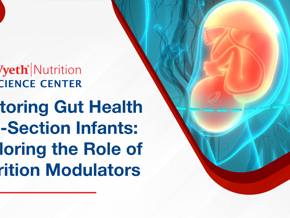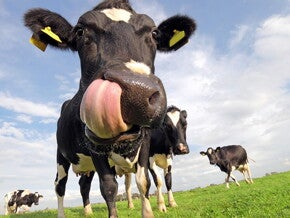![[Hot Science] Progressive changes in gut microbiome of infants receiving total parenteral nutrition](/sites/default/files/styles/header_image_article_mobile/public/2019-11/image%284%29_3.jpg.webp?itok=RiROQmKw)
[Hot Science] Progressive changes in gut microbiome of infants receiving total parenteral nutrition
Subjects
- 47 NICU infants were split into two groups:
- TPN group (n = 25) – received TPN with soy lipid
- Control group (n = 22) – did not receive TPN or soy lipid
Method
- Intervention
- All subjects received routine care advised by the providing physician
- All subjects received none or no more than 10 days of antibiotics
- All subjects received no probiotics
- TPN group received TPN with soy lipid following pre-established NICU guidelines+
- Both groups received breast milk as primary source of enteral nutrition as available, if not, formula was given as alternative
- Data collection and analysis
- Demographic and clinical data were collected from medical records
- Fecal samples were collected for the first 4 weeks of life and microbial genomic DNA was then isolated and analyzed
+TPN was administered as follow: (1) intravenous amino acid initiated at 3 g/kg/day, then advanced to a maximum of 3.5-4 g/kg/day for preterm infants and a maximum of 3 g/kg/day for term infants; (2) soy lipid initiated at 2 g/kg/day, then advanced to a maximum of 3 g/kg/day; (3) carbohydrates initiated at a glucose infusion rate of 4-6 mg/kg/min, then advanced to a maximum of 10-12 mg/kg/min
Key Findings
- As compared to control group, TPN infants were found to have:
- A higher likelihood of having a gastrointestinal (GI) diagnosis on admission, requiring GI surgery, and requiring antibiotic therapy
- A persistently lower fecal bacterial alpha diversity (p = 0.03)
- Lower
- Lower Bacteroidetes abundance (p < 0.05)
- Higher Verrucomicrobia abundance (p < 0.05)
Conclusion
TPN-associated dysbiosis, including loss of biodiversity and alteration of colonization pattern, may assert progressive detrimental impacts on the gut microbiome of infants, predisposing them to adverse NICU outcomes.
Link to the article: https://www.nature.com/articles/s41390-019-0391-y.pdf
Reference
Dahlgren A, Pan A, Lam V, Gouthro K, Simpson P, Salzman N, Nghiem-Rao T. Longitudinal changes in the gut microbiome of infants on total parenteral nutrition. Pediatric Research. Doi:10.1038/s41390-019-0391-y
Other online materials that you might be interested in:
Human milk oligosaccharides (HMOs) and the prevention of necrotizing enterocolitis
WYE-EM-124-APR-19
If you liked this post you may also like


![[Literature Library] Epitope-Specific Response of Human Milk sIgA in COVID-19 Recovered Women](/sites/default/files/styles/card_m_carousel_mobile/public/2021-07/205_COVID-opt.jpg?itok=YPO7jIYg)
